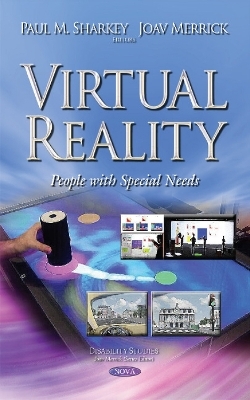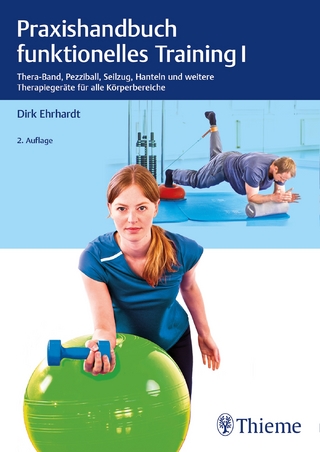
Virtual Reality
Nova Science Publishers Inc (Verlag)
978-1-63321-729-4 (ISBN)
Paul M Sharkey, HDipEE, BSc(Eng), MA, PhD, FIET, MISVR, CEng, is professor of cybernetics, member of the Cybernetics Research Group and Director of the Visualization and Interactive Technologies Centre at the School of Systems Engineering, University of Reading, Reading, United Kingdom. Professor Sharkey's research interests lie in the fields of robotics, control systems, active vision and virtual reality, particularly in the overlapping areas within these fields relating to systems architecture and systems where delays are an inherent part of the closed loop. In 1996 he founded, and remains the Programme Chair for, the International Conference Series on Disability, Virtual Reality and Associated Technologies, a biennial conference that brings together psychologists, physical and occupational therapists, clinicians, engineers and computer scientists to further understanding in the multi-disciplinary area in the field of rehabilitation and disability. He was also a founding member and is a current member of the Board of Directors for the International Society for Virtual Rehabilitation. In 2010, he was elected a Fellow of the Institution of Engineering and Technology. Joav Merrick, MD, MMedSci, DMSc, (Medical Director, Health Services, Division for Intellectual and Developmental Disabilities, Ministry of Social Affairs and Social Services, Jerusalem, Israel; Division of Adolescent Medicine, KY Childrens Hospital, Department of Pediatrics, Lexington, Kentucky, US; National Institute of Child Health and Human Development, Jerusalem, Israel; Division of Pediatrics, Hadassah Hebrew University Medical Centers, Mt Scopus Campus, Jerusalem, Israel; School of Public Health, Georgia State University, Atlanta, Georgia, US)
Introduction; Virtual & augmented reality environments; Developmental cognitive neuroscience perspective on motor rehabilitation; Improving orientation & mobility skills through virtual environments for people who are blind; Upper-body interactive rehabilitation system for children with cerebral palsy; A collaborative virtual environment for conducting design sessions with students with autism spectrum disorder; Mathematical literacy for everyone using arithmetic games; The Surrey Virtual Reality System for the (gait) rehabilitation of children with cerebral palsy; Assessing prospective memory in young healthy adults using virtual reality; Virtual reality learning software for individuals with intellectual disabilities; Haptic presentation of 3D objects in virtual reality for the visually disabled; Haptics visualisation of scientific data for visually impaired users; Impact of simulated low vision on perception & action; Index.
| Erscheint lt. Verlag | 1.12.2014 |
|---|---|
| Verlagsort | New York |
| Sprache | englisch |
| Maße | 155 x 230 mm |
| Gewicht | 446 g |
| Themenwelt | Medizin / Pharmazie ► Physiotherapie / Ergotherapie ► Rehabilitation |
| Sozialwissenschaften ► Soziologie | |
| ISBN-10 | 1-63321-729-9 / 1633217299 |
| ISBN-13 | 978-1-63321-729-4 / 9781633217294 |
| Zustand | Neuware |
| Haben Sie eine Frage zum Produkt? |
aus dem Bereich


